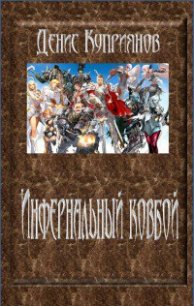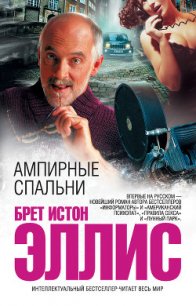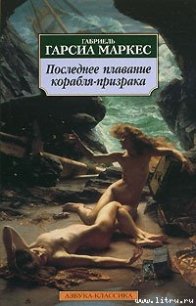[The Girl From UNCLE 01] - The Birds of a Feather Affair - Avallone Michael (читаем бесплатно книги полностью txt) 📗
There was a crisp crackle of electrical noise, then a raising of volume. Slate frowned, the table top inches from his jaw. What were they up to? Why should he be interested in a news broadcast?
Arnolda Van Atta abruptly said, "Wait, wait—I think that's it now. Put the transistor close to Mr. Slate's ear."
A bright measured voice was speaking. The clear tones seemed to echo in the room. Slate was riveted to the announcement :
".....a fire and explosion of undetermined origin in the Bronx today has alerted all fire departments in the vicinity of Bronx Park and East 180th Street. A five story building which had once served as a dye factory in the nineteen-thirties seemed to detonate with great violence this afternoon at approximately four-thirty five. Scores of windows, for a radius of ten blocks, were shattered by the force of the explosion.... In a moment, Sports and the Weather, after this message from...."
"You can turn it off now, Fried Rice," Arnolda Van Atta said. The abrupt silence was excruciating for Slate. Yet his brash voice was unconcerned, light as he rested his cheek on the table and stared up at the ceiling.
"Awful waste of a good hideout," he suggested.
"The end justifies the means, Mr. Slate. We left your Miss Dancer back there when we departed in such a hurry. There was no possible way for her to have gotten out. Unless she had wings."
"You misjudge April, old girl. She's an angel. A positive angel. The mistake is yours and the misfortune of Thrush, I might add."
There was a chortle from Mr. Riddle. "Why do you bluff, you fool? The lady was blown to Kingdom Come and nothing you say or think will ever change, that."
"Bully for you, Mr. Riddle," Mark Slate said drily.
Pig Alley spoke for the first time. "Ma foi, this madman has the guts! I would have liked for him to have been with me at Dien Bien Phu!"
"We're wasting time, Arnolda," Riddle said flatly. "Let's leave him to them and see about Zorki."
"No," she said. Suddenly, she took her forefinger and thumb, seized a patch of Slate's right shoulder just below the deltoid of the arm and twisted her fingers. She twisted hard but he did not cry out. He set his teeth and closed his eyes until she relaxed her agonizing pinch. A long sigh escaped her. She was breathing hard. If he could have seen her face, he wouldn't have liked the weird glint of her green eyes. "Idiots!" she hissed. "All of them—idiots! I'll take care of Mr. Slate myself. But later. Not now. Come."
Riddle murmured something and there was a grunt or two of agreement from the others. Footfalls retreated from the table. A door closed. Slate let the tears of pain wash down his face and blinked them away. He could hang on; he would hang on, but the memory of the broadcaster's words haunted him.
He stared into the snout of the Browning .30 caliber machine gun.
He thought about his captors. Arnolda Van Atta. What a name for a bitch of a redhead. Mr. Riddle. That flat, dead as dust, unemotional voice. A French apache called Pig Alley—well, he sounded true to the type. A Chinese named Fried Rice. He filed the information in his agent's mind. He had to admit, even to himself, that he might not live long enough to use that information.
Zorki. Would Mr. Waverly go through with the swap?
April. Was April really dead?
He had to face facts.
For all agents everywhere—death came sooner or later.
He also wondered, almost with amusement, what Arnolda Van Atta had planned for him in the torture department.
He began to hum. He hummed softly and rhythmically, like a man who knows his music and can truly carry the melody. The little room filled with his low, vibrant voice.
A Rock 'n Roll tune that Elvis Presley had made world famous: "Blue Suede Shoes."
He found himself trying to imagine how the Beatles would have treated that particular number.
The War Room of the Pentagon building featured an enormous circular table of polished mahogany. The walls of the room were devoid of decor. A panel board of buttons rested on the table, just to the right of the chairman's seat. At all high level conferences and meetings, these buttons made it possible to provide, suddenly, large colored strategic maps and various panoramic views of the globe. By electrical and mechanical ingenuity, the maps and views could be brought into view at a moment's notice. Very extremely clever architects, from the various branches of military service, had poured their creativity into the devising of this room.
At seven o'clock that evening in Washington, D.C., Mr. Alexander Waverly sat in conclave with the Joint Chiefs Of Staff. A specially chartered flight from Kennedy Airport had jetted him to the nation's capital. Mr. Waverly had asked the Secretary of Defense to arrange the conference. The President was in California; he would not be needed until it was made precisely clear what had led the head of the U.N.C.L.E. organization to call for a Red Alert.
The heads of the Army, Navy, Air Force and Marine Corps, beribboned, and wary of secret service organizations, all watched closely as Mr. Waverly presented the problem. A hush lay across the War Room. It was like a unique conference in the Executive Suite of a vast industrial empire. This was business, too. The biggest business of all.
"—so there it is, gentlemen," Mr. Waverly said stonily. "We have Zorki and Thrush wants him back. As I have tried to indicate in this rather elaborate report, Zorki is the key to the entire machination of Thrush in this country. If they get him back, there can only be the most dire consequences."
"Mr. Waverly," the Chief of the Army rumbled. "If he's all you say, and none of us can doubt that, what's the problem?"
"They have two of my finest operatives as hostages," Waverly said, trying not to appear emotionally involved. "If a trade is not effected, the operatives will most certainly be killed."
"Wages of war, Mr. Waverly. And, I take it, this is a war. I'm sure your men understand that and wouldn't have it any other way."
"They do," Waverly agreed. "One of them is a young woman, in fact. But I'm afraid I haven't made myself clear. I haven't come here to ask your advice on the advisability of a trade. That is out of the question. Zorki must be kept from ever returning to Thrush."
The Chief of the Army looked around the table at his colleagues as if seeking reinforcements for his argument. "He's a spy, isn't he? This is a national emergency. Why not shoot him? And may I ask what your organizational problems have to do with us? You have called us all away from our desks. I trust there is more to it than a mere local problem."
Waverly shook his head. "I am sorry, Gentlemen. Killing Zorki, apart from the fact that this country doesn't operate that way, would be too simple. He is far more valuable alive. He must be made to defect from Thrush."
An irritated wave of voices washed around the table. The Secretary of Defense coughed politely, by way of interruption. He had an inkling of Waverly's problem, thanks to some private comments in the hall, prior to the conclave.
"Perhaps if you explained the qualities of this man, Mr. Waverly, the Chiefs and I would be better able to offer suggestions."
The Chief of the Navy was oddly silent and thoughtfully watching the head of U.N.C.L.E.
Waverly considered for a moment, then nodded, almost to himself, as if deploring the necessity and then finding the Defense Secretary's request unavoidable.
"Yes, perhaps so." He gazed slowly about the circular table, eyeing each of these important men as if he could influence them with what he was about to say. "Alek Yakov Zorki is no mere agent provocateur, gentlemen. In our files he is listed under the code name of Bomber, letters KKK. Oh, he is highly skilled for all of of the typical agent's jobs of assassination, sabotage, propaganda and intrigue but he is far more than that. He is a scientist. We first came abreast of this fantastic man after World War Two. He had achieved a record of liquidating Nazis for the Russians that, to quote William Shakespeare, would make each separate hair on your heads stand on end. But, I am not concerned with his abilities to kill and destroy. It is his work in the Moscow laboratories which make him so important to a world organization with the devilish aims of Thrush. They wooed him away from the Reds. Second, these attainments make him someone to worry about. You see, Zorki loves field work. Bombings, sabotaging factories, destroying shipping, radar stations. There's a zest about the man that belies his more sedentary genius in the research laboratories. But it is that phase of his work which involves us. We never would have gotten our hands on him if he hadn't decided, almost as a lark, to come to New York to blow up the Verrazzano Bridge. He is a capricious man. We have him now but we also have nothing."




